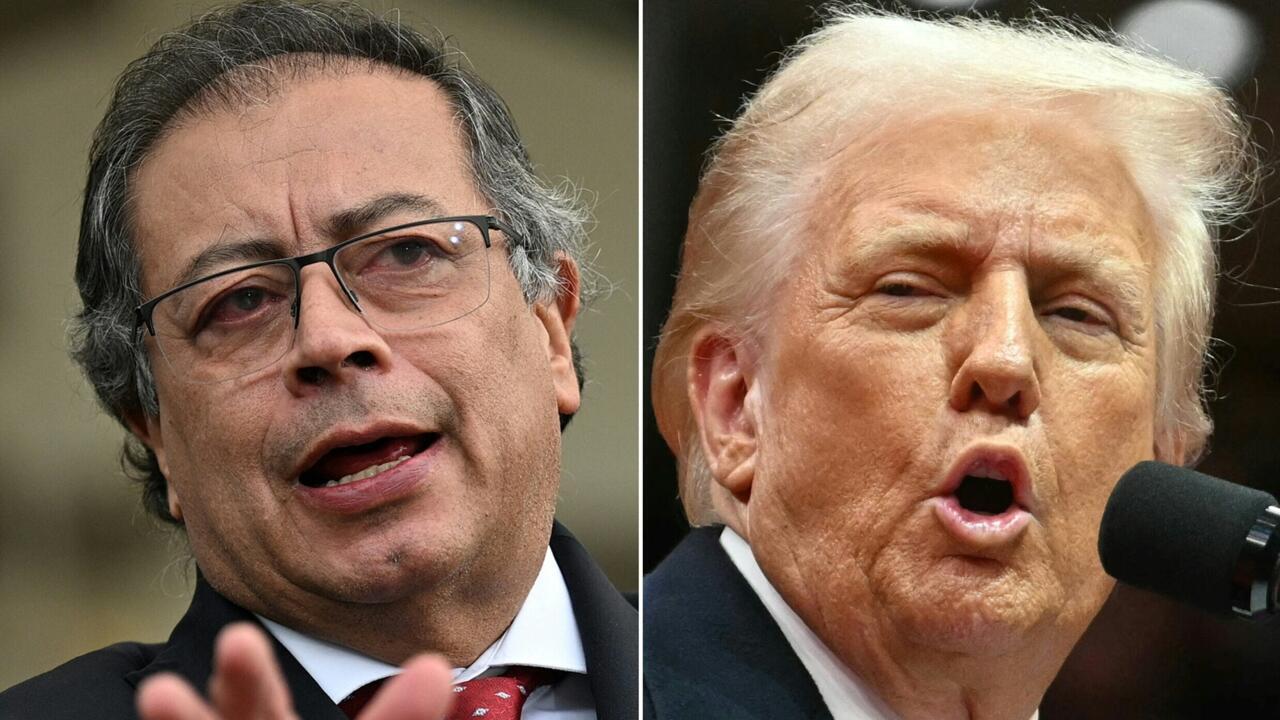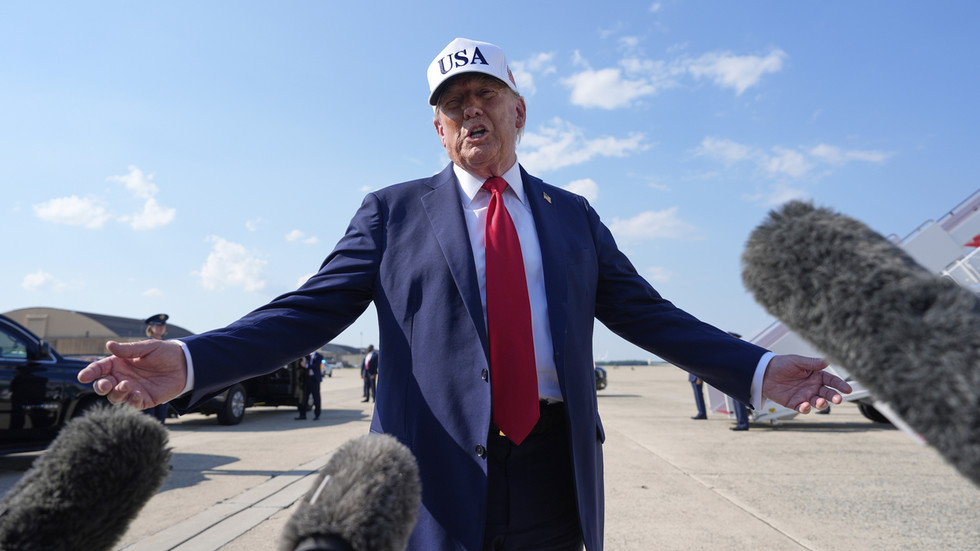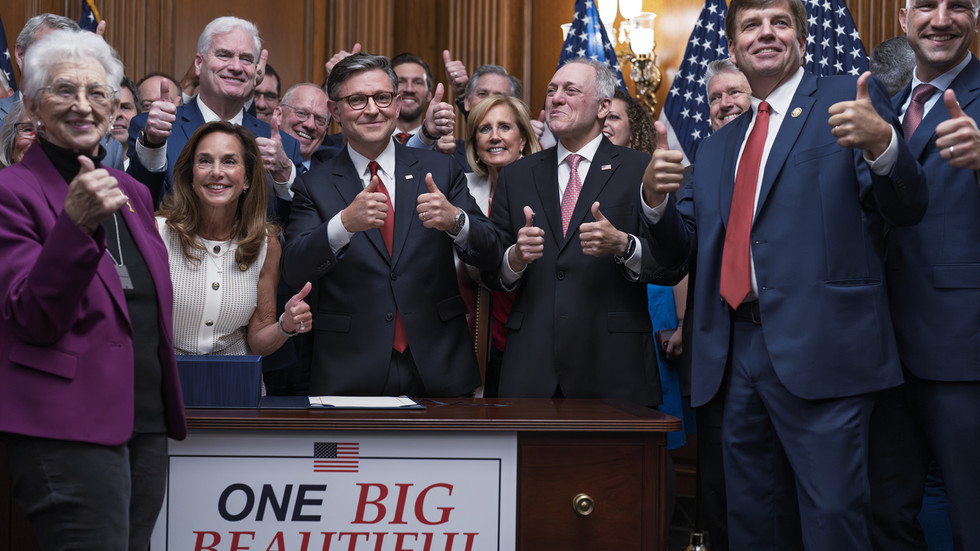Fewer US weapons for Ukraine, more financial leeway for Moscow – two decisions out of Washington in recent days have laid bare how Trump’s return to the White House is already reshaping the war in Ukraine and Western pressure on Moscow.
Washington announced on Tuesday it would suspend deliveries of certain military equipment to Ukraine. The White House said it was simply following the Pentagon’s recommendations amid concerns about maintaining sufficient reserves for America’s own defence needs.
Just a week earlier, another Trump administration decision opened up new commercial avenues for Russian companies in the nuclear sector, most notably Rosatom. The US Treasury introduced an exemption to a Biden-era ban on doing business with Russian banks.
While narrowly tailored to civil nuclear energy financing, this marks the first formal breach in US sanctions against Russia under Trump – sanctions that had steadily intensified since Washington’s initial response to Moscow’s annexation of Crimea in 2014.
Air defences and artillery shells
"These are two signals from the United States confirming what many had suspected: that Washington is no longer fully committed to standing with Ukraine, and that defeating Russia is not central to Donald Trump’s understanding of American interests," said Mark Harrison, emeritus professor of economics and Russia expert at the University of Warwick.
The decision to halt the next shipment of weapons leaves little room for ambiguity. Even if the Pentagon's concerns about strategic reserves are legitimate, Harrison argued the decision clearly shows that "logistical support for Ukraine is no longer a priority for the United States".
Although Washington did not disclose the shipment’s full contents, the New York Times reported it included artillery ammunition, air defence systems, and missiles – all critical to Ukraine’s defence against Russian bombardments and drone attacks.
These are vital in a war where fortified Russian positions must be shelled and air threats – from drones to missiles – must be intercepted.
"The immediate effect will be limited, as other deliveries from the US and Europe are still in the pipeline,” Harrison said. “But the long-term impact could be serious, especially if Europe fails to fill the gap left by waning American support."
To display this content from X (Twitter), you must enable advertisement tracking and audience measurement.
Beyond the battlefield, the decision also offers a morale boost to Moscow. “It’s a very different challenge to fight a Ukrainian army backed fully by the United States,” Harrison said. “That’s no longer the case.”
According to economist Kirill Shakhnov of the University of Surrey, this shift is also closely tied to US domestic politics. Trump likely delayed the shipment to appease the more "America First" wing of the Republican Party, which opposed the US military operation in Iran. Isolationist voices in Congress are pressuring Trump to stick to his pledge "to withdraw from conflicts in which the United States plays a role", Shakhnov added. In that light, Ukraine is being used as a bargaining chip while Trump pursues other goals, notably Iran.
A gift to Viktor Orban
If Europe can hope to offset the missing American weapons, it has fewer options when it comes to the economic favour Trump just handed Vladimir Putin. The exemption that allows Rosatom and other Russian nuclear firms access to global financing comes as a surprise to many.
"This clearly won’t have a major impact on the Russian economy," said Shakhnov.
"Gas and oil exports are far more important than uranium," added Chloé Le Coq, an energy policy expert at Paris-Panthéon-Assas University who specialises in Russian hydrocarbons.
Still, analysts point to two likely motives behind Trump’s decision. First, by targeting a relatively minor domain for the Kremlin, the Trump administration may be testing the waters to see if such a move sparks backlash. So far, there’s been little reaction… apart from Ukrainian media outlets.
Second, it's useful to consider who benefits. Rosatom, of course, but also Hungary, led by Trump ally Viktor Orban. Just two days after the exemption was announced, Hungarian authorities revealed that the waiver would allow them to restart the stalled construction of the Paks-2 nuclear power plant, a multibillion-euro project largely funded by Rosatom.
"Donald Trump may have made this decision to please Viktor Orban, one of his main allies in Europe," said Shakhnov.
In short, it appears to be a cosy deal between Hungarian, American and Russian interests at the expense of the sanctions enforcement. Orban had been furious last November when one of Joe Biden’s final decisions put his nuclear plant project on hold after Gasprombank, a Rosatom partner, was placed under US sanctions.
A Russian foothold in Europe’s future energy market?
Paks-2 is one of the Hungarian government’s flagship infrastructure projects. The plant was to be funded with €10 billion from Rosatom and Russian banks.
Trump’s decision explicitly reopens the door for Gazprombank to fund civil nuclear projects. But the question remains: why is Rosatom willing to lose money by investing so heavily in a project unlikely to yield much profit?
"When a company is willing to take such a financial loss, it suggests there’s another motive," said Le Coq. That’s especially true of Rosatom, which often serves as a foreign policy tool for the Kremlin.
One possible explanation, she suggested, lies in the European project to build a single electricity market. "If a Russian actor holds even a small part of that market, it becomes a strategic concern," she said. "Unlike oil or gas, it’s hard to find a substitute energy source once a nuclear plant is plugged into the grid."
In other words, Trump’s decision is not only a win for Russia and Hungary, it’s also a blow to European interests.
This article has been translated from the original in French by Anaelle Jonah.











 English (US) ·
English (US) ·